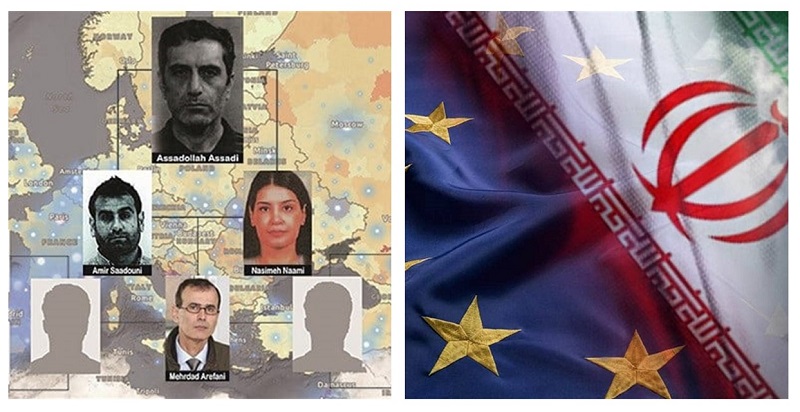
In recent reports, it came to light that an appeal had been filed in a Belgian court by three individuals convicted earlier this year of plotting to bomb an Iranian expatriate rally in Paris in 2018. The defendants were sentenced to 15, 17 and 18 years behind bars respectively, while their handler, Iranian diplomat Assadollah Assadi was sentenced to 20 years, which he has declined to appeal.
The National Council of Resistance of Iran (NCRI) issued a statement in response to the appeal stating that, “to dismantle the regime’s terrorism, the Ministry of Intelligence and Security(MOIS) and the Islamic Revolutionary Guard Corps(IRGC) must be designated as terrorists in their entirety, their agents, and operatives are prosecuted and punished, their asylum and citizenship revoked, and they must be deported.”
The NCRI’s statement also recommended that a dossier containing the full scope of Iran’s terrorist activities be referred to the United Nations Security Council, as well as detailing the crimes against humanity that have been inflicted upon the Iranian people themselves.
As the appeals are being heard in Belgium, hearings are currently being held in Albania in the case of former Iranian prison official Hamid Noury for his involvement in the massacre of 30,000 political prisoners in Iran in the summer of 1988.
Noury was one of the officials at Gohardasht Prison who led prisoners to the ‘death commission’ before later leading them to the gallows to be executed by hanging for failing to align with the regime’s interpretation of Islam. The majority of the victims murdered during the massacre were members of the Iranian opposition, the People’s Mojahedin Organization of Iran (PMOI/MEK).
The regime is desperate to hide any evidence of the atrocities that took place, even going as far as to pave over and build upon sites where many of the massacre’s victims are buried in secret mass graves in order to prevent future investigations.
Human Rights organizations, such as Amnesty International, have previously warned of the impact of this phenomenon on the families of victims, as well as its reinforcement of the regime’s impunity when it comes to matters of human rights abuses and acts of terrorism.
The NCRI said, “Amnesty was also quick to highlight that impunity in the wake of Iran’s June presidential election, which saw the election of Ebrahim Raisi to the country’s second-highest office following a race in which other viable candidates were barred from running.”
Calls for investigations into the Raisi’s historic human rights abuses and crimes against humanity have been ongoing for years, both for his role as the head of the judiciary at the time of the brutal crackdown of the November 2019 uprising, and his role as a member of the Tehran death commission during the 1988 massacre.
The NCRI’s response and statements on Noury’s trial has continuously pointed out that the principle of universal jurisdiction used to convict Noury could be used to justify Raisi’s prosecution. They have also extended the call for the prosecutions of other high-ranking regime officials, including Supreme Leader, Ali Khamenei.
The NCRI said, “Western policymakers still remained largely silent on the issue of the massacre in the wake of those public statements, thereby courting further criticism regarding weak Iran policies and a tendency toward appeasement.”